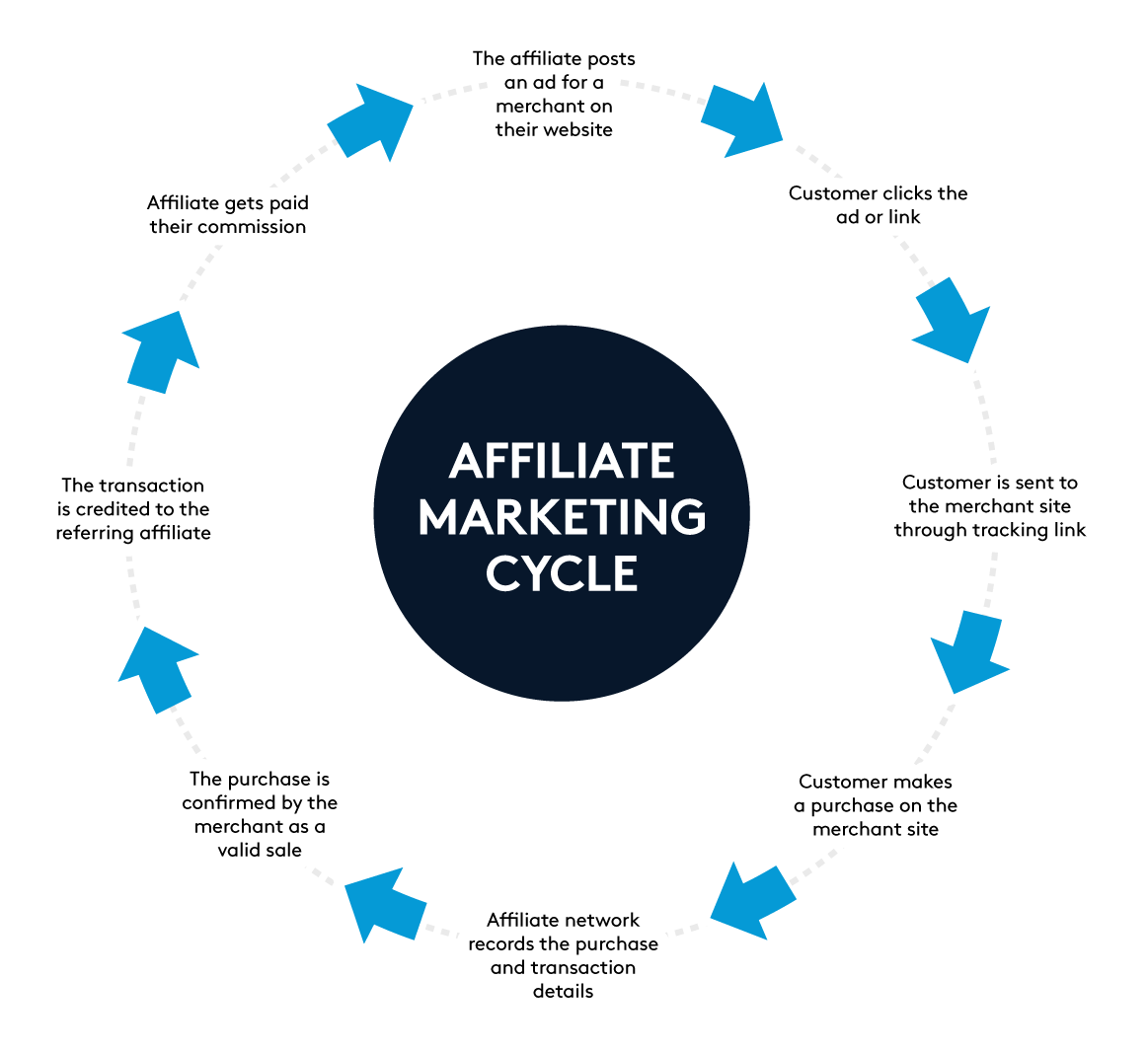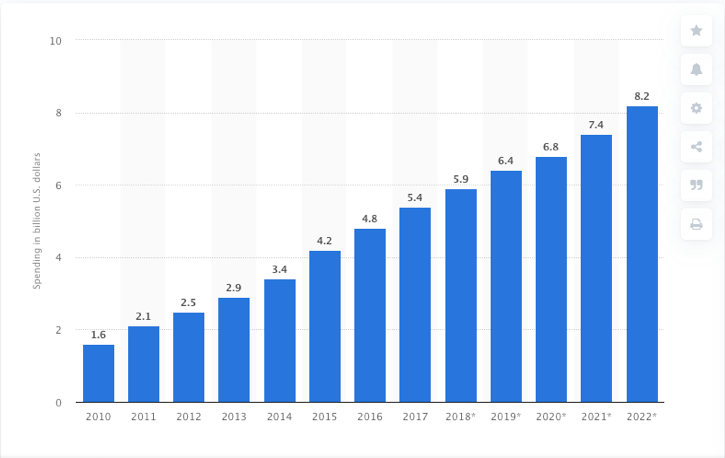Affiliate Marketing: An Ultimate Guide for 2021, Part 1

The basics: What is affiliate marketing
Affiliate marketing is a dynamic industry that continues to gain momentum and for good reasons. The performance-based marketing method has proven to increase brand awareness, generate new leads, and deliver strong ROI. For those looking to enter the space or optimize their existing affiliate programs, CAKE has created the ultimate guide for affiliate marketing.
This is part one of our three-part blog series on everything affiliate marketing. In this post, we’ll cover the basic, yet fundamental, questions of affiliate marketing to get you one step closer to understanding the industry and getting the most out of your marketing efforts.
What is affiliate marketing?
Affiliate marketing is a form of performance marketing that enables advertisers to pay publishers based on the performance of their marketing campaigns. The brand or advertiser defines the desired action they’re looking for and then pays when that action has been completed. That action may be submitting a form or completing an ecommerce transaction.
Affiliate marketing programs are used by companies across verticals such as ecommerce, retail, financial and legal services, real estate, and gaming.
How does affiliate marketing work?
The goal of affiliate marketing is to drive customers to the advertiser so that affiliates can earn a commission on the sale. For advertisers, affiliate marketing extends their resources and reach, and they only pay for verifiable impressions or conversions, rather than for ads that may simply have been served up and ignored.
This is how it works. The approach enlists third-party partners (commonly referred to as “publishers” in the affiliate world) to promote offers and drive web traffic on behalf of an advertiser. Instead of the advertiser doing all the heavy lifting involved in finding relevant audiences (whether through traditional search, email, display, or mobile campaigns), some of this work is “outsourced” to publishers who in turn market to potential customers fitting a predetermined profile. Publishers are then paid a commission when they return a qualified lead that takes some kind of action, such as filling out their information or using a coupon to purchase a product.

What is an affiliate network?
An affiliate network serves as an intermediary between the affiliate and the merchant. Affiliates participating in these networks are able to easily find suitable affiliate programs for their website, and in turn generate income for both parties. Additionally, companies offering affiliate programs benefit as they can reach all of the publishers participating in the affiliate network, and determine which partners and campaign types work best for them plus quickly expand their reach.
In some cases, an affiliate is actually required to go through an affiliate network to even be eligible to promote a specific product.
Affiliate marketing statistics
Numbers show that publishers are expected to increase their investments in affiliate marketing. In 2020, PerformanceIN’s network data revealed that approximately one in four shoppers were new to the brands they bought from through affiliate links, and this number has only gone up since.

Here are more interesting affiliate marketing statistics.
- By 2021, affiliate marketing in the U.S is projected to reach $7.4 billion in spend. (eMarketer)
- In July 2020, search for “affiliate marketing” hit its highest mark in 11 years. Additionally, the term’s popularity ranking increased around 300 percent during the past five years. (mediakix)
- Affiliate marketing programs generate 15-30 percent of all sales for advertisers. (Authority Hacker)
- The vast majority of advertisers – 83 percent – use affiliate networks to secure deals with publishers. (Forrester Group)
- Marketers turn to the affiliate marketing industry to boost their conversion rates and improve online purchases. Additionally, 83 percent of them use it to increase brand awareness, and 79 percent of them use it to engage existing customers. (Rakuten)
- Affiliate marketing makes up 15 percent of all digital media revenue. (Hosting Tribunal)
- 90 percent of advertisers think affiliate programs are essential to their marketing strategy. (Forrester)
How to do affiliate marketing using technology
The use of innovative affiliate marketing technology benefits advertisers, networks, and publishers as insights become easier to access and the whole process is more efficient. For affiliate marketing to be successful, advertisers must accurately track key data points so they can verify actions, such as clicks and conversions, and identify the offers and publishers that actually performed.
Below, we share three key technology capabilities that should be considered in today’s affiliate marketing world. Incorporating them into an affiliate marketing program will improve precision, reliability, and scalability that results in what will always be essential – increased revenue and strong company growth.
Precision: Accurate, real-time monitoring and reporting
The industry runs in real-time, therefore the data should follow suit. Technology empowers you to make decisions quickly, based on accurate reporting.
Insights regarding traffic trends, such as spikes or declines, allow you to avoid paying for traffic that cannot be monetized. It’s also critical to immediately detect fraudulent traffic, since one fake click can cost a company thousands of lost dollars.
Additionally, real-time visibility about clicks and conversions is important for managing profit margins. Key elements to monitor include:
- Region – Traffic must be acceptable for any client with a global presence and be routed properly.
- IP – Fraudulent IPs should be spotted and blocked immediately.
- Referring URL – Clicks need to be monitored to ensure they are coming from approved sites with approved call-to-actions.
- Volume – Something as simple as tracking the volume of clicks and conversions offers insights on questions regarding monetization such as can we support and afford to pay out on the traffic or is the payout an appropriate price per lead.
Payment control: Understand the value of a lead and reward your high-performing partners
With access to important data through technology, each partner’s true contribution can be examined. A partner that generates consistent high-quality traffic should be incentivized with a higher commission. Or vice versa.
Having the ability to control payments at a granular level is also key. Below are tips to keep in mind:
- Every affiliate is different, so determine payment based on individual affiliate performance.
- Tiers allow you to get creative. When partners generate a certain number of sales, incentivize them with a higher CPA.
- Some metrics are more important than others for your industry. Dive into reporting and leverage industry-specific insights to determine which affiliates are generating what you actually need.
Reliability and security: Safeguard your data, maintain trust, and pave the way for scalability
It’s too risky to base such a vital piece of your business on a short-term solution. So, only depend on a reliable, secure, and scalable platform that you can trust will be around for the long haul. With that confidence, you can then focus on how technology can help expand your business.
Any company aiming to grow should consider these necessities for an enterprise-grade platform:
- Intelligent scalability: Flexibility to scale your affiliate marketing program across new verticals with flexible traffic volumes.
- Enterprise reliability: 99.9 percent uptime guarantees.
- Protection and security: Strict security audits, with investments in security, backup technology, and maintenance. Commitment to ongoing GDPR efforts and additional security regulations.
- Stable provider: Don’t settle by operating in a risky environment. It is particularly difficult to scale an affiliate marketing program if you need to switch technology platforms because a provider is unsuitable.
Interested in learning more about leveraging technology to grow your affiliate marketing program to achieve maximum profitability? Reach out to the CAKE team at info@getcake.com.
Other content you might be interested in: